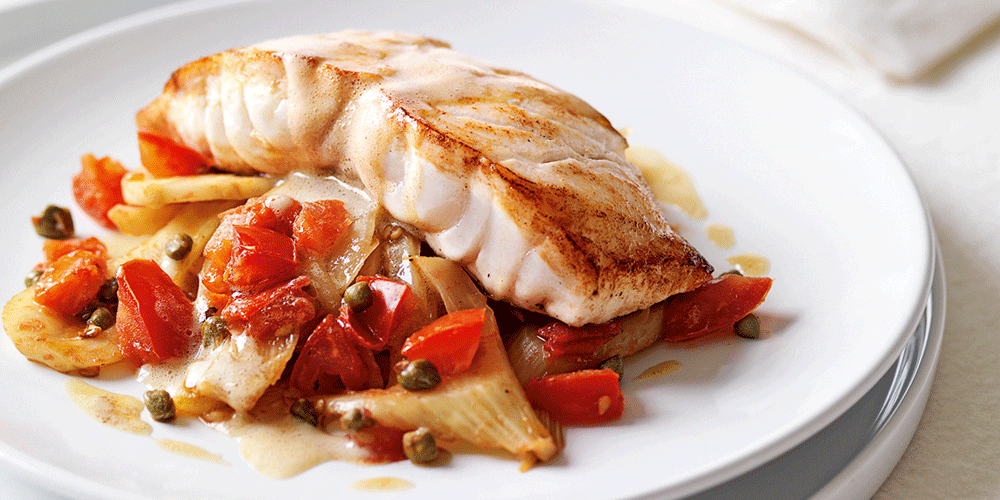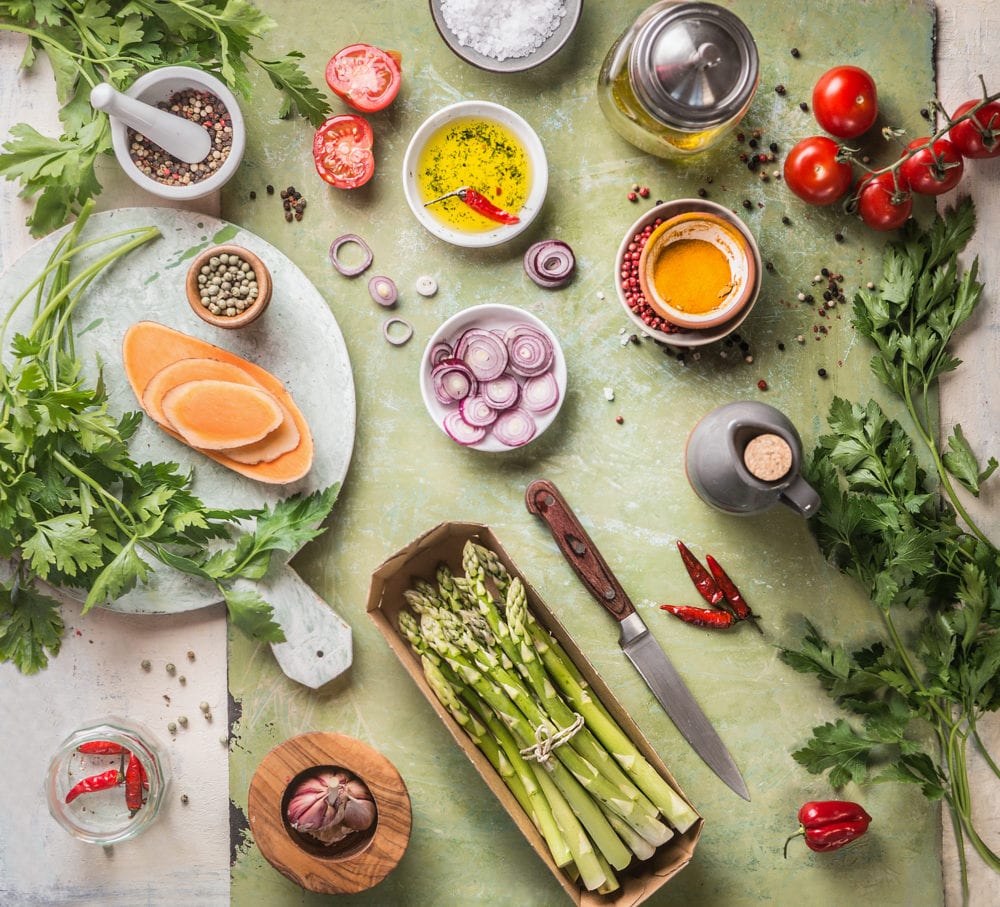Our pill-popping Western culture often dismisses the idea of ‘food as medicine’ as nonsense. But researchers are challenging the concept that healing is the domain of drugs alone, revealing strong correlations between healthy diets and healthy humans, especially when it comes to mental functioning and health.
It turns out that eating a diet rich in fruit, vegetables and fish may protect the brain from age-related damage, including dementia. A study published in Neurology reveals that elderly people with high levels of vitamins B, C, D, and E, and omega-3 fatty acids in their blood have less brain shrinkage and better mental performance, particularly compared with people who consume a lot of trans fats (common in junk food).
Another study, conducted at Deakin University in Melbourne, links poor diet to mental-health problems in teenagers. It also found that adjusting mentally ill patients’ diets to include nutrient-rich food improved their state of mind.
Dr Gene Bowman, Affiliate Professor of neurology at Oregon Health and Science University, says, “It’s very exciting to think that people could potentially keep [their brains] sharp by adjusting their diet.”
How your brain works
“The average human brain … is estimated to have about 100 billion cells,” writes clinical neuropsychologist Dr Glen Johnson in his ebook, Traumatic Brain Injury Survival Guide. He explains the brain’s complexity with a modern analogy: “If we took all the phones in the world and all the wires … the number of connections and the trillions of messages per day would not equal the complexity or activity of a single human brain.”
These 100 billion cells are mainly neurons, which fire off chemicals to trigger other neurons, creating chain reactions that help us move, think and feel. These chemicals, or neurotransmitters, include epinephrine, norepinephrine, and dopamine. Certain foods support the functioning of these neurons, helping them more effectively pass on messages.
So what, specifically, are the miracle ingredients that can help us function at a higher level? Nutrition scientist Rebecca Charlotte Reynolds, PhD, says that although the evidence is inconclusive, a diet rich in the following nutrients can affect brain function in a positive way.
Carbohydrates
Have you ever noticed how people on low-carb diets tend to suffer from foul moods and poor concentration? That’s because carbs are the brain’s preferred energy source. “Glycaemic Index [GI] can also affect brain function,” says Reynolds.
She recommends low-GI foods for slow-burning fuel, as opposed to the energy rush and subsequent crash you get from high-GI foods (such as lollies and soft drinks). “High-quality carbohydrate intake has also been linked to improved learning in children,” she adds.
Go for: Wholegrain breads, pastas, flours and cereals.
Antioxidants
They’re all the rage within the beauty industry, but ingesting antioxidants might be just as good as slathering them on your skin. “Micronutrients with antioxidant properties may reduce free-radical damage to the brain,” says Reynolds. These free radicals, or toxins, build up in our bodies over time. Antioxidants mop up these toxins, giving you a nice, tidy mind with which to work.
Go for: Fruits, vegetables and nuts.
B vitamins
Much lauded by energy-drink manufacturers, B vitamins participate in a range of processes in the body and brain. Vitamin B6 influences mental function and mood, and B1 (thiamine) affects the neurotransmitter acetylcholine, which helps with attention and memory. (Given its impact, scientists are excited about the prospect of thiamine as a potential treatment for Alzheimer’s disease.)
Go for: Animal proteins (beef, lamb, chicken, fish, shellfish), dairy products and leafy green vegetables.
Fish oil and vitamin D

Among its many health benefits – which include improving circulation, lowering cholesterol and easing inflammation from arthritis – fish oil has also been found to improve depressive symptoms. “The omega-3 fatty acids in fish reduce inflammation and oxidative damage,” says Reynolds, “which means they could play an important role in cognition.” Vitamin D, found in fish, egg yolks and liver, may help people suffering from depression, though the evidence for this is less strong.
Go for: Fish such as salmon, tuna and mackerel.
Protein
A protein-rich lunch, such as a piece of fish or steak, keeps you going through the afternoon better than eating a whole tray of potato bake (which will probably just send you to sleep). This is because most neurotransmitters consist of amino acids – the building blocks of protein. By eating protein, you can cause the levels of certain neurotransmitters in your brain to increase, giving you more energy.
Go for: Red meats, poultry, fish and dairy products.
Fluids
Good news for coffee lovers: “Caffeine and water can aid brain functioning,” says Reynolds. Water keeps cells plump and healthy, and a cup of coffee increases energy and mental alertness. The caveat is that these effects are observed when people consume moderate amounts of caffeine. “Aim for eight glasses of water per day and drink coffee with minimum full-fat milk and sugar,” says Reynolds.
9 Foods that are good for your brain
Salmon
Seafood fans will be happy to hear that there’s much more to salmon than omega-3 and Vitamin D. This fishy favourite is also a good source of selenium, iron and calcium.
Blueberries
Blueberries deliver anthocyanins, plant compounds with anti-inflammatory and antioxidant effects. Some of these antioxidants have been found to accumulate in the brain and help improve communication between brain cells.
Turmeric
The active ingredient in turmeric, curcumin, has been shown to cross the blood-brain barrier, meaning it can directly enter the brain and benefit its cells. It has also been linked to improved memory and eased depression.
Eggs
Eggs are a rich source of several nutrients linked to brain health. These include vitamins B6 and B12, folate, and choline, all important for regulating mood and promoting proper brain function and development.
Grapes
Like many fruits, grapes are high in antioxidants (such as vitamin E, flavonoids, linoleic acid and oligomeric proanthocyanidin complexes), which help destroy nasty free radicals
Leafy Greens
Remember how your mother always told you to eat your greens? Well, she was right. Filled with various B vitamins, vegetables such as lettuce, spinach and kale give your brain a healthy boost
Coffee
In addition to its energising caffeine content, coffee is high in antioxidants and research shows it may decrease the risk of developing Parkinson’s disease, dementia and type 2 diabetes.
Red Meat
Throw a steak on the barbie, because according to research from Australia’s CSIRO, the fatty acids in lean red meat may reduce the risk of heart disease (when eaten in moderation).
Brown Rice
For improved brain and muscle function, eat low-GI carbs, such as brown rice, wholemeal pasta and wholegrain breads. Brown rice is also a good source of B vitamins







